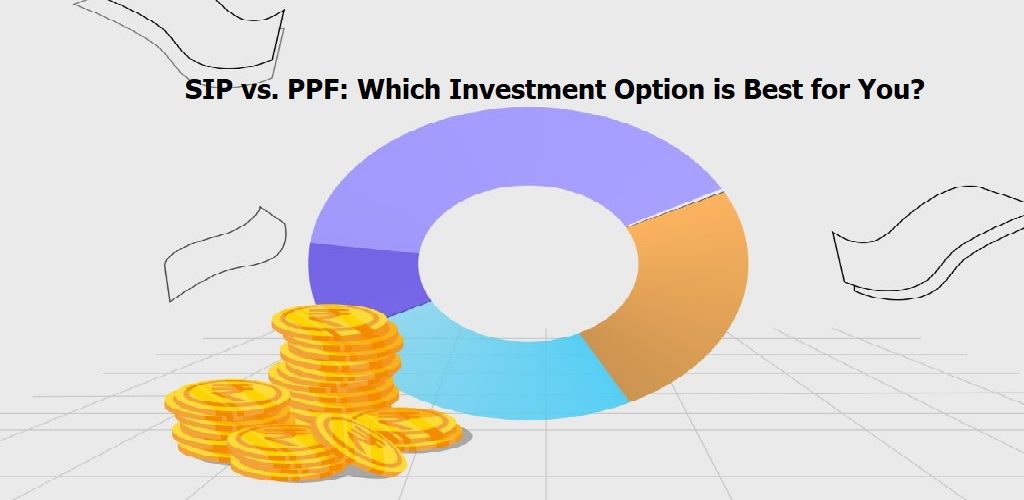Choosing between real estate and the stock market as investment options can indeed be a perplexing decision for aspiring investors. In the Indian context, each option comes with its own set of advantages and considerations.
Real estate has traditionally been a popular investment choice in India due to its tangible nature and the perceived promise of steady returns. Owning physical assets like property can provide a sense of security, and real estate often appreciates over the long term.
On the other hand, the stock market offers better liquidity, safety, and the potential for quick growth. The stock market provides opportunities for diversification, allowing investors to spread their risk across various stocks and sectors. Additionally, it offers the flexibility of buying and selling stocks relatively quickly.
We’ll go into greater detail about the advantages and disadvantages of each choice in this post and provide a thorough analysis to help you make a decision.
What is Real Estate Investment?
Buying property as an investment rather than a primary residence with the goal of making money is known as real estate investment. It can be summed up as any piece of real estate, building, infrastructure, or other tangible asset that can be transferred to make money even if it is frequently immovable.
The real estate industry has been a major source of wealth for thousands of years. Investing in real estate primarily involves buying property with the goal of capitalizing on growth as well as income. Examples of this category include residential, farmstead, business, retail, and leisure.
What are the Features and Benefits of Real Estate Investment?
The following are some of the profitable reasons to invest in real estate in India:
- Rental Income Potential
The primary sources of income for real estate investors are appreciation, rental income, and profits from enterprises that depend on real estate. When the time comes to sell, you may profit if you make a wise investment because real estate has a tendency to increase in value over time. Additionally, rentals have a tendency to rise with time, which could improve cash flow.
When economies grow, there is greater demand for real estate, which drives up capital values and raises rents. Real estate tends to preserve the purchasing power of capital by transferring some of the inflationary pressure to tenants and integrating some of it through capital expansion.
- Tax Benefits and Incentives
Purchasing real estate has several tax advantages. One can save up to Rs 1.5 lakh on a house loan’s principle under section 80C. Similarly, section 24 allows for a reduction of up to Rs 2 lakhs in the mandatory interest payment.
It will cut the cost of real estate investing and drastically reduce taxable income.
A range of expenses are eligible for tax deductions, including cash flow from other assets, business expenses, and mortgage interest.
- Diversification and Risk Management
When making real estate investments, diversification is a decision. The relationship between real estate and the other major asset classes is brittle, sometimes even inverse. Therefore, when real estate is incorporated into a portfolio of different assets, it can lower volatility and increase return on risk.
Real estate investing can be much safer than other assets such as banks, cryptocurrency, gold, the stock market, and so on. Although gold prices might reduce market volatility, they can have drawbacks, like storage and theft concerns. The stock market is a dynamic environment.
- Long-Term Value Appreciation
Property appreciation is the most crucial consideration when assessing the advantages and disadvantages of a real estate investment.
When market rates rise, so does the property’s value, making it easier for the owner to sell the house swiftly. Even if a property’s value stagnates for a long, you can still generate a steady rental income with the correct maintenance and management. Therefore, before making a commitment to buy in a certain location, all investors should conduct due diligence.
- Financing and Leverage
Since real estate is a physical asset, it can generate income from a range of sources and see capital growth. Unlike stocks, which have little to no actual value, real estate provides eternal stability because its value never drops.
Acquiring and financing real estate is simple, and it can enhance your lifestyle and offer tax advantages. Furthermore, there aren’t any significant financial barriers.
One of the main advantages of real estate investing is leverage, or the capacity to finance the purchase of a property with a small down payment and borrowed funds.
What are Stocks?
On the other hand, investing in the stock market is a simpler and more approachable choice. It’s crucial to learn, investigate, and stay up to date on the most recent information on the market and its numerous underlying causes if you’re new to the stock market. The bright side is that novice investors can begin investing in the equity market far more easily than they do in the real estate sector. An easy way for investors to enter the stock markets is through reputable stockbrokers to help with the opening of a trading account and demat account.
Making a profit is the primary concern in active stock market trading, even when there are small brokerage fees. According to a SEBI report, only 11% of dealers made money in FY22. Even while day trading and even investing in futures and options are unlikely to be the first things investors do, most inexperienced investors lack the discipline to spread their money across a wide range of assets, which is typically where true wealth-building occurs.
What Distinguishing Features and Benefits Do Stocks Offer?
Here are the unique features and benefits of stocks.
- Better Long-term Returns
The Indian and global stock markets have historically given investors substantial returns over time. A primary advantage of stock investment is the chance to exercise patience and observe the growth and compounding of your capital. Even while individual stock prices fluctuate every day, the value of the stock market as a whole continues to increase.
The stock market has historically produced the highest returns for investors, outpacing all other financial instruments including the housing market across a number of decades, according to an analysis of many asset classes.
- Dividend Income
A large portion of the company’s revenues are paid as dividends, which provide income for several owners. While some corporations do pay dividends, most do so once a quarter. They can choose to put this profit back into the business. Even in cases where the value of the stock has decreased, firms can still pay a portion of their profits to shareholders through dividends.
Dividends from stock ownership can provide investors with a number of advantages. Payment of dividends has the potential to raise the overall return on your stock investment. By supporting the stock price, they also aid in reducing price volatility.
- Ownership
Purchasing a stock means acquiring ownership or a stake in a company. Each share of stock represents a portion of ownership, and shareholders are entitled to certain rights. One significant right is the ability to vote on key decisions at the company’s annual general meetings. Shareholders can participate in electing the board of directors and voting on other important matters that impact the company’s direction.
- Hedge Against Inflation
It’s been said that money falls back if it isn’t moving forward. This is the effect of inflation on money’s purchasing power. Investing in stocks can be a good way to protect yourself from growing inflation in the current economy.
It has been observed historically that stock returns outperform inflation rates. An increase in pricing may result in greater profit for businesses, which may raise share prices. Growth stocks, such as those in technology, FMCG, and other industries, have been shown to beat the market as a whole and offer a reliable inflation hedge.
- Transparency
The Stock Exchange Board of India (SEBI) is responsible for supervising and controlling the Indian stock market. The creation of such an institution has made stock market investing safer and more transparent. SEBI regards the safeguarding of investors’ interests as a top concern. This makes a big difference in lowering the risks associated with business fraud.
Investing in stocks is still one of the best methods to build money over the long run. Any investor can use the stock market to help them reach their long-term financial objectives if they have a strategic investing plan.
Difference Between Investments in Real Estate vs. Stock Market in India
Here is the comparison between real estate and stock market investment in India.
| Parameters | Real Estate | Stocks |
| Term of Investment | You must hold onto your real estate investment for a long time if you want to see good profits. To receive the most return on your investment, you will need to wait for the market to reach the suitable level. | While the investment period is lengthy, it is not as long as that of real estate. For an asset that has been functioning well, you should be able to enjoy good returns in five to seven years. |
| Market Conditions | Real estate is not as vulnerable to market fluctuation as equities are. Thus, after the market has stabilized, hanging onto your investment will yield better returns. | Stocks can be significantly impacted by market volatility, sometimes even within minutes. Because of these price swings, a lot of investors continually buy and sell stocks, which reduces the value of the stocks in the market. But if you stick with your investments over time, you’ll soon see that most large-company equities start to perform well once more. You ought to be able to benefit from larger profits as a result than what real estate has to offer. |
| Ease of Investment | Before you can finalize the sale, paperwork and investigation must be done. It could occasionally take you months to sort everything out. | Investing in stocks is rather simple; all you have to do is select the best stock broker and connect your bank account to your trading account. You can complete all of this online, so you don’t even need to leave your house. |
| Liquidity | To liquidate your real estate holdings, you must constantly wait for the market prices to meet your expectations. | It offers tremendous liquidity because you can sell your investments whenever you want. If necessary, you can partially liquidate your equity assets to pay your financial obligations. |
| Tax Implications | Both residential and commercial properties are subject to property tax. The property’s location will determine the amount of tax you must pay. | The capital gains tax may differ for investments made over long and short periods of time. 10% of long-term investment returns and 15% of short-term investment returns may be subject to taxation. |
Summing up
Investing in stocks indeed requires relatively little capital compared to real estate investments. To get started with stock investing in India, you typically need a Demat account and a trading account. These accounts allow you to buy and sell stocks on the stock market.
Additionally, many online trading platforms provide valuable resources such as research advisories and investment tips, aiding investors in making informed choices. These tools can help you analyze stocks, understand market trends, and optimize your investment strategy.
Investing in the stock market offers greater liquidity as you can use your trading account to make many sales in a single day. In conclusion, investing in the stock market is simple and only requires a few clicks. Investing in real estate requires a significant amount of time and work, and in order to see any kind of return, funds must be retained until favourable market values are reached.
Frequently Asked Questions
Yes, real estate investments come with risks such as property value fluctuations, economic downturns, vacancy rates, property management challenges, and unexpected expenses. It’s important to conduct thorough research and due diligence before investing.
Real estate investments can be financed through various methods, including personal savings, mortgages, partnerships, real estate investment groups, or even crowdfunding platforms.
You can stay informed about your stock investments by regularly monitoring financial news, company reports earnings calls, and economic trends. Many brokerage platforms also provide real-time market data and analysis tools to track your investments.
The choice between investing in individual stocks or mutual funds/ETFs depends on your investment goals, risk tolerance, and time commitment. Investing in individual stocks requires research and monitoring, while mutual funds/ETFs offer diversification and professional management.
Dividends are a portion of a company’s profits distributed to shareholders. They can provide regular income to investors and are often an indicator of a company’s financial strength and stability.







